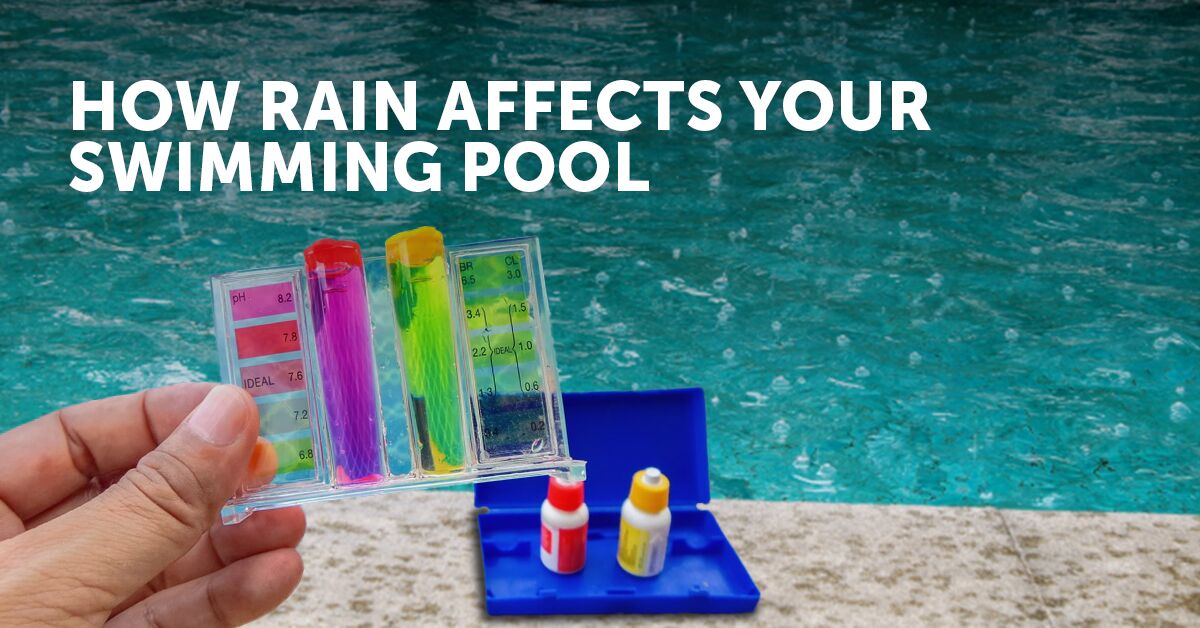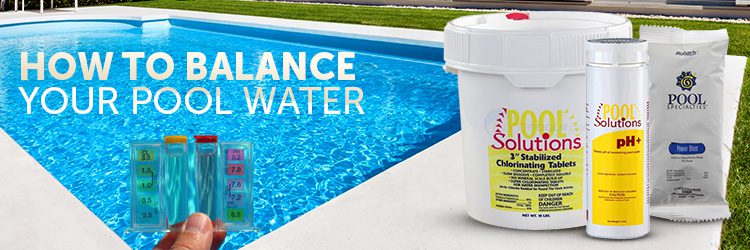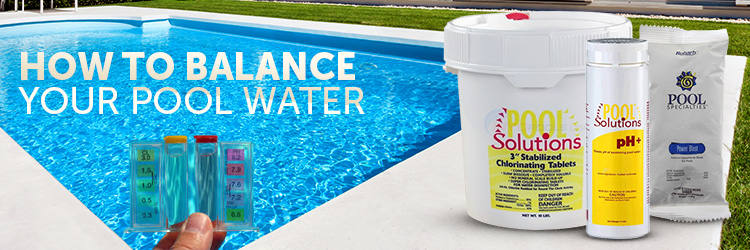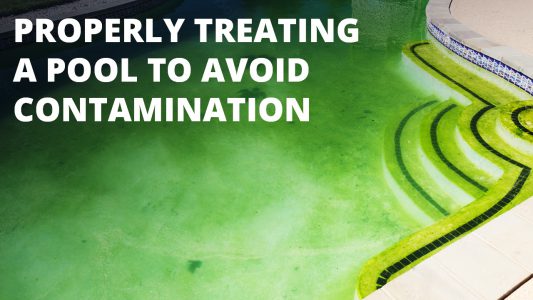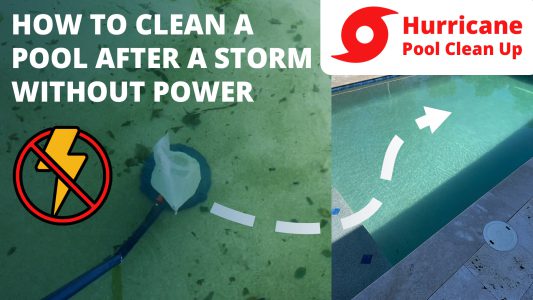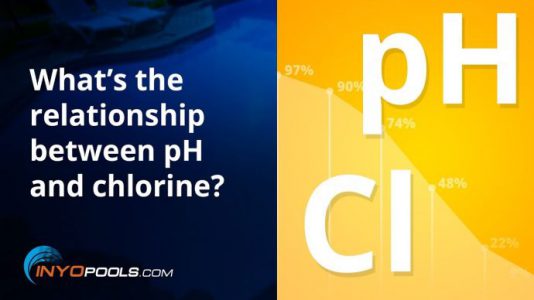Living in Florida, we are accustomed to daily bipolar thunderstorms. For example, last week it poured for 30 minutes. Afterward, the sky was clear and the sun was out. However, have you ever thought about how rain affects your swimming pool?
In this article, we discuss how rainwater can affect your pool and water chemistry and ways you can combat it.
Rainwater and Your Water Chemistry
When it comes to rainwater, one of the first areas you want to pay attention to is your water chemistry. Due to the pollution and toxins in our air, our rainwater is inherently acidic. In comparison, it still has a lower pH level than the recommended levels in our pool. We recommend keeping your pH levels between 7.4 and 7.6.
 The reason why is because the human eye has a pH of 7.5.
The reason why is because the human eye has a pH of 7.5.
Whenever you have major fluctuations in pH, it causes eye discomfort. Normal rainwater has a pH of around 5.0. So, depending on how much rain you receive, it can lower the pH of your pool.
Still, just because it rains for a few minutes, does not mean it will completely throw off your pH levels. Light rainfall may temporarily lower your pH levels, however, not by much and it eventually rises on its own. In short, a little rain won’t disturb a properly balanced pool.
A large amount of rain, however, is a different scenario. A large thunderstorm can easily drop between one and three inches of water in a short amount of time. This amount of rain definitely alters your chemical balance.
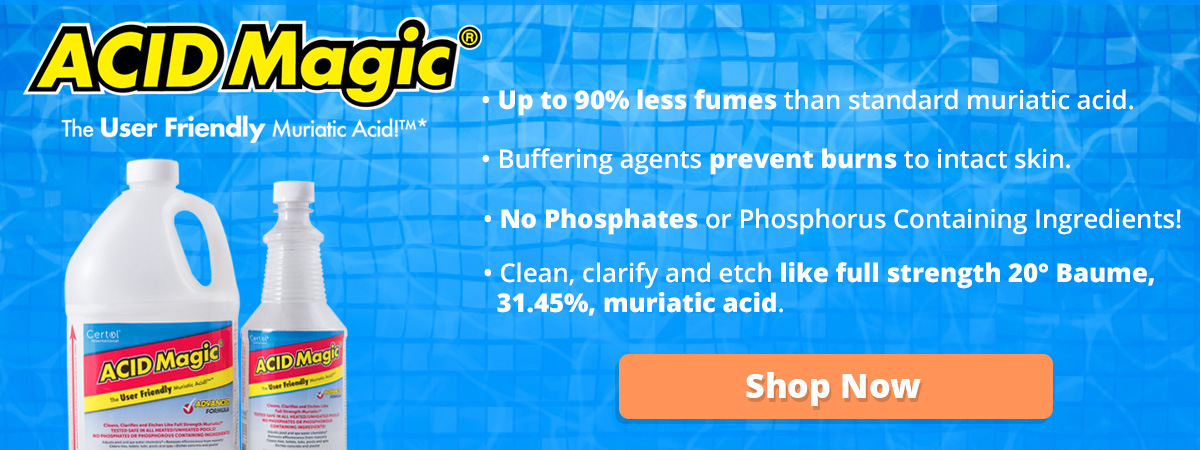
Run-off Water
In addition to rainwater, pool owners should also pay attention to runoff water. Runoff water is the water that falls off of your house, landscape, or deck and ends up in your swimming pool. When run-off water enters your pool, it can alter your pool’s calcium hardness, total dissolved solids (TDS), alkalinity, and other chemical levels. Additionally, it also brings in other contaminants into the pool.
Again, the extent of your chemistry issues is a result of how much rain you get. However, after a long tiresome thunderstorm, what should you do?
What Should You Do Now?
After a bad thunderstorm or neverending rain, the first thing you want to do is test your water. As a pool owner, it’s always a great idea to keep a water testing kit on hand. If you do not own a water testing kit, contact your local pool company. Most companies can perform a test with a sample of your pool water. Once you know the current levels of your water, you can begin adjusting them.
In case of flooding, it is also a good idea to drain any excess water. Bring your water levels down to an appropriate level for proper skimming. Be careful that you are not draining the water below the skimmer. This can run the pump dry and cause other issues.
Adjust Your pH Levels
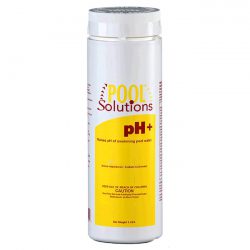
Your pH level indicates how acidic your pool water is. The pH is a scientific scale from 0-14, with 7 being dead neutral. The ideal pH level is a 7.7 or 7.8. Anything between 7.5 and 7.8 is good, although, anything between 7.2 and 8.0 is acceptable for swimming. Everything that enters your pool, including rainwater, has a pH. So, it ’s always good to check your pH levels once a week, to be on the safe side.
Once your levels fall below 7.2, swimmers tend to experience stinging and burning eyes. Levels below 6.8 can cause severe damage to metal parts in your pool equipment if it is left untreated. It does not take long for a pool with low pH levels to weaken vinyl and heat exchangers.
Typically, to adjust the pH of your pool, you add pH increasers (bases) or a pH decreaser (acids).
For more information on how to balance your pool water, click the banner below.
Maintaining Your Pool Before and After A Storm
In a previous episode of Poolside Chat with Matt and Rob, we discussed how pool owners can maintain their swimming pools after a storm. If your area was recently hit by a storm and you’re looking for a quick overview on how to maintain your pool, check it out below.
Also, if you have any questions, sound off in the comments section below.

